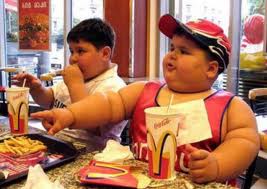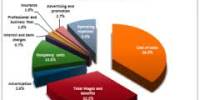Introduction:
McDonalds is the words largest fast food corporation, serving more then 57 million people in 119 countries daily with more then 31,000 restaurants world wide in which 6,899 are owned by company and 20,499 are operated as franchise and 3,960 are operated by affiliates.
According to a 2006 study at Baylor all saints medical center regular family meal times have great benefits that extend for beyond the dinner hour children have fewer weight problems develop healthy eating habits and have a healthier self image making them less prone to drug and alcohol problems.
“Globalization is the inexorable integration of markets, nations, states and technologies to a degree never witnessed before”. Thomas Friedman
As MacDonald’s expands their business in international market, the company is influenced by the globalization the spread of the American way of life. Its prominence has also made it a frequent topic of public debates about obesity, corporate ethics and consumer responsibility.
Globalization impact on McDonalds:
Today 40% of American meals are eaten outside the home. Each day 1 in 4 American visit a fast food restaurant. MacDonald’s operates more then 30,000 restaurants in more then 100 countries on six continents. A new MacDonald’s open somewhere in the world every three hours. the number of MacDonald’s by country (1995).
As a world largest fast food American organization MacDonald’s always criticized by governments of different countries by people because MacDonald’s is disrupting the cultures specially according to china.
in 1990, David Morris and Helen Steel two British activists, , distributed leaflets entitled What’s wrong with McDonald’s? on the streets of London. McDonald’s wrote to Steel and Morris demanding they desist and apologize, and, when they refused, sued them for libel in a case known colloquially as the McLibel case.
In “Eric Schlosser’s book” Fast Food Nation it includes criticism on fast foods especially on MacDonald’s. Among the critiques were allegations that McDonald’s (along with other companies within the fast-food industry) that they are using their political influence to increase their profit at the expense of people’s health and the social conditions of its workers. It is also indicated in the book that MacDonald’s especially targeting children by offering happy meal. while the book did not targeted other fast food chains.
In 2002 Hindus of India successfully criticized and sewed MacDonald’s because they are misrepresenting MacDonald’s as vegetarian.
Morgan Spurlock’s 2004 documentary film Super Size Me said that McDonald’s food was contributing to the epidemic of obesity in society, and that the company was failing to provide nutritional information about its food for its customers. Six weeks after the film premiered, McDonald’s announced that was eliminating the super size option, and was creating the adult happy meal.
Anthony Bourdain criticized MacDonald’s on his show, no reservation , among other fast-food restaurants for its culinary blandness. In 1999 Jos Bov vandalized a McDonald’s in France to protest against the Soya that is fed to McDonalds chickens is supplied by agricultural giant Cargill and comes directly from Brazil. Greenpeace alleges that not only is Soya destroying the Amazon rain forest in Brazil, but Soya farmers are guilty of further crimes including slavery and the invasion of indigenous people’s lands.
The accusation is that McDonald’s, as a client of Cargill’s, is complicit in these alleged activities.It has also filed numerous defamation suits. The McLibel case is probably the best known of these. McDonald’s sued two Greenpeace activists for distributing pamphlets attacking its environmental, labor and health records. After the longest trial in UK legal history, McDonald’s won a technical victory for showing that some allegations were untrue. But it was a massive public relations disaster since the judge also found that more than half of what was on the pamphlet was truthful, or were simply the opinions of the activists and therefore non-prosecutable a prominent example of the rapid globalization of American fast food industry, McDonald’s is often the target of criticism for its menu, its expansion, and its business practices. For example, in 1990, two British activists, David Morris and Helen Steel, distributed leaflets entitled what’s wrong with McDonald’s? on the streets of London. McDonald’s wrote to Steel and Morris demanding they desist and apologize, and, when they refused, sued them for libel in a case known colloquially as the Malibu case.
When McDonalds received criticism for its environmental policies in the 1970s, it began to make substantial progress towards source reductions efforts. For instance, an average meal in the 1970sa Big Mac, fries, and a drink required grams of packaging; today, it requires only 25 grams, allowing a 46 percent reduction.[29] In addition, McDonalds eliminated the need for intermediate
containers for cola by having a delivery system that pumps syrup directly from the delivery truck into storage containers, saving two million pounds of packaging annually.[30] Overall, weight reductions in packaging and products, as well as the increased usage of bulk packaging ultimately decreased packaging by 24 million pounds annually. McDonalds is facing problems from all areas of the PEST analysis. The company is suffering from political threats from wars between countries where the company operates, as well as from governments now adding legislation to force them to put health warnings on their products. They have also become a symbol of capitalism and Americanism meaning that they have now become the target of terrorist groups and attacks. McDonalds has no control over these political factors which are making the company suffer greatly. They can only leave war stricken countries, or places where terrorism is a threat. This means a loss in revenue, as well as the company becoming smaller and too. They have found a recent slump in sales from its fast food business, therefore weaker. McDonalds are experiencing economical problems lately suggesting customers want more freedom of choice, something which they may not get at McDonalds. To combat this McDonalds have bought out other companies, such as Pret Manger. By diversifying the company they aim to increase sales again by offering the customer more variety, as this seems to be what consumers are demanding.
Advertisements to attract children’s
As advertises know how to attract children and MacDonald’s especially focus on children’s by offering happy meals (meal + toy=5 pound) and especially kids are suffering from disease like fatness because of MacDonald’s fast food and without education children will continue to be manipulated by these advertisement when children know what is being done to them we may be able to stop the spread of childhood obesity.
Demographic trends in UK
McDonald’s entered the UK in 1974 with its first restaurant in Woolwich in south-east London. Since then, McDonald’s had been expanding steadily in the UK by providing quality, service, and value to its customers. As of 2009, McDonald’s managed about 1200 restaurants in the UK including 700 drive-through outlets. For McDonald’s, the UK was one of the challenging markets but as of 2009, it was one of the most promising markets for the fast food chain. the various strategies adopted by McDonald’s in the UK including its operational, localization, promotional, and employee-related strategies.
In the mid-1980s, members of the London Greenpeace started a campaign against the business practices of McDonald’s. In 1985, they launched an “International Day of Action against McDonald’s” which was held on October 16 every year after then. In 1986, the activist group came out with a six-page pamphlet called “What’s Wrong with McDonald’s?-Everything they don’t want you to know.”
In 2003, McDonald’s adopted the ‘Plan to Win’ strategy in the UK market in order to increase sales. As part of the ‘Plan to Win’ strategy, McDonald’s offered variety and value, tastier food, and improved service to customers. To cater to the health-conscious customers in the UK, McDonald’s introduced healthier options such as salads and provided nutritional information about its products on food packages. It regularly altered its menu to include new items. In order to attract British customers, McDonald’s tried to localize some of the items on the menu. It offered a few versions of local food on its menus. For the health conscious English customers, items such as the Vegetable Deluxe burger were offered. In the desserts category, McDonald’s UK offered as many as three kinds of donuts as these were popular with British customers. With its entry into the UK, McDonald’s introduced American style fast food which was quite different from the English taste. For instance, for making French fries, McDonald’s used imported russet potatoes. The milk shakes available at McDonald’s were very thick and different from the ones available at local fast food chains. McDonald’s promoted its brand image in the UK through the use of digital media like the Internet, websites, online promotions, e-mails, online games, and TV commercials. These initiatives were meant to create awareness among customers regarding the quality of the food, nutrition, health-related information, menu choices, etc. at McDonald’s. McDonald’s restaurants in the UK operated as part of the local community. In order to protect the local environment in which it operated, the company implemented ethical practices across its business. Litter bins were found outside all McDonald’s restaurants. In 2007, sales in the UK were up by 4.6% and McDonald’s was slowly gaining market share in the country. In 2007, its sales in Europe witnessed an upward curve, growing by 3.9% in February, 4.1% in both May and June, 4.3% in July, 4.9% in August, 5.3% in September, 5.4% in October, and 5.6% in November.
McDonalds Corporate Governance
“The basis for our entire business is that we are ethical, truthful and dependable. It takes time to build a reputation. We are not promoters. We are business people with a solid, permanent, constructive ethical program that will be in style years from now” Ray Kroc, 1958
McDonald’s success is built on a foundation of personal and professional integrity. Hundreds of millions of people around the world trust McDonald’s. They earn that trust everyday by serving safe food, respecting our customers and employees and delivering outstanding Quality, Service, Cleanliness and Value (QSC&V). They build on this trust by being ethical, truthful and dependable. In short, what Ray Kroc, founder of McDonald’s Corporation said some 45 years ago was right.
McDonald’s Board of Directors is entrusted with and responsible for the oversight of McDonald’s Corporation in an honest, fair, diligent and ethical manner. The Board has long believed that good corporate governance is critical to fulfilling the Company’s obligation to shareholders. We have and will continue to strive to be a leader in this area..
McDonald’s Board believes that good governance is a journey, not a destination. Accordingly, they are committed to reviewing our governance principles at least annually with a view to continuous improvement. One thing that will not change, however, is our commitment to ensuring the integrity of the McDonald’s System in all its dealings with stakeholders.
“McDonald’s Corporation’s Board of Directors is entrusted with, and responsible for, the oversight of the assets and business affairs of McDonald’s Corporation in an honest, fair, diligent and ethical manner. This Board has long believed that good corporate governance is critical to our fulfilling our obligations to shareholders. We firmly believe that good governance is a journey, not a destination. Therefore, we are committed to reviewing our governance principles at least annually, with a view to continuous improvement. As our governance processes evolve, we will change this document. One thing that we will not change, however, is our commitment to ensuring the integrity of the Company in all of its dealings with stakeholders. Our continued focus on leadership in corporate governance is an integral part of fulfilling our commitment to shareholders”.
Adopted by the Board of Directors with effect as of January 21, 2010
1. Role of the Board –
The Board, which is elected by the shareholders, is the ultimate decision-making body of the Company, except with respect to matters reserved to shareholders. The primary function of the Board is oversight. The Board, in exercising its business judgment, acts as an advisor and counselor to senior management and defines and enforces standards of accountability – all with a view to enabling senior management to execute their responsibilities fully and in the interests of shareholders. The following are the Board’s primary responsibilities, some of which may be carried out by one or more Committees of the Board or the independent Directors as appropriate:
o Overseeing the conduct of the Company’s business so that it is effectively managed in the long-term interests of shareholders;
o Selecting, evaluating and compensating the Chief Executive Officer (CEO) and planning for CEO succession, as well as monitoring management’s succession planning for other key executives;
o Overseeing and reviewing the Company’s strategic direction and objectives, taking into account (among other considerations) the Company’s risk profile and exposures;
o Monitoring the Company’s accounting and financial reporting practices and reviewing the Company’s financial and other controls;
o Overseeing the Company’s compliance with applicable laws and regulations; and
o Overseeing the processes that are in place to safeguard the Company’s assets and mitigate risks.
In performing its oversight function, the Board is entitled to rely on the advice, reports and opinions of management, counsel, auditors and outside experts. In that regard, the Board and its Committees shall be entitled, at the expense of the Company, to engage such independent legal, financial or other advisors as they deem appropriate, without consulting or obtaining the approval of any officer of the Company.
2. Role of the Chairman –
The Chairman shall be a member of the Board of Directors and may, or may not be, an officer or employee of the Company. A non-executive Chairman shall not be an officer or employee of the Company. The principal duty of the Company’s Chairman is to lead and oversee the Board of Directors. The Chairman should facilitate an open flow of information between management and the Board, and should lead a critical evaluation of Company management, practices and adherence to the Company’s strategic plan and objectives. In accordance with the Company’s By-laws, the Chairman shall preside at all meetings of the Board and the shareholders. The Chairman, in consultation with the CEO, shall also establish an agenda for each meeting of the Board.
3. Role of the CEO and Management –
The Company’s business is conducted by its employees, managers and officers, under the direction of senior management and led by the CEO. In carrying out the Company’s business, the CEO and senior management are accountable to the Board and ultimately to shareholders. Management’s primary responsibilities include the day-to-day operation of the Company’s business, strategic planning, budgeting, financial reporting and risk management; and in fulfilling those responsibilities, management must balance the unique relationships between and among the McDonald’s System of employees, franchisees and suppliers.
















